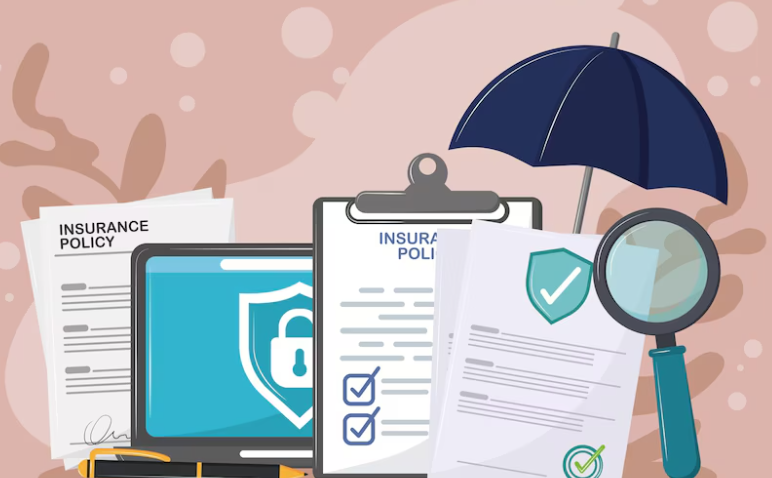Introduction
Running a business comes with its share of risks. From unexpected accidents to legal issues, there are numerous challenges that can threaten your company’s financial stability. Business insurance is a crucial tool that helps protect your company from a wide range of risks. Whether you own a small startup or a large corporation, understanding the different types of business insurance and how they can safeguard your operations is essential.
In this article, we’ll explore the various types of business insurance and how they can protect your company from unexpected risks.
1. General Liability Insurance
What It Is:
General liability insurance provides coverage for third-party claims related to bodily injury, property damage, and personal injury that occur as a result of your business operations. This is one of the most common types of business insurance.
Why It’s Important:
Accidents can happen at any time, and if someone is injured on your business property or by one of your products or services, you may be held responsible. General liability insurance helps cover legal fees, medical expenses, and damages if your business is found liable for injuries or property damage.
2. Property Insurance
What It Is:
Property insurance protects your business property, including buildings, equipment, inventory, and furniture, from damage or loss caused by events such as fire, theft, vandalism, or natural disasters.
Why It’s Important:
Whether you own or lease the space where your business operates, property insurance ensures that you can repair or replace damaged property without incurring significant out-of-pocket costs. This coverage is especially critical for businesses that rely on physical assets.
3. Workers’ Compensation Insurance
What It Is:
Workers’ compensation insurance provides benefits to employees who are injured or become ill as a result of their work. This insurance covers medical expenses, lost wages, and rehabilitation costs for employees who suffer job-related injuries.
Why It’s Important:
In many states and countries, workers’ compensation is mandatory for businesses with employees. Even if it’s not required by law, this coverage is essential to protect your workers and your business from lawsuits related to workplace injuries.
4. Professional Liability Insurance
What It Is:
Also known as errors and omissions (E&O) insurance, professional liability insurance protects businesses that provide professional services or advice from claims of negligence, mistakes, or failure to perform duties as expected.
Why It’s Important:
If your business offers services or expertise to clients, you could face legal action if a client feels that your advice or work caused them financial loss. Professional liability insurance helps cover legal fees, settlements, and damages arising from such claims.
5. Business Interruption Insurance
What It Is:
Business interruption insurance, also known as business income insurance, covers the loss of income that your business may suffer if it’s unable to operate due to a covered event like a natural disaster, fire, or theft.
Why It’s Important:
A disaster or accident can halt your business operations, resulting in lost revenue. Business interruption insurance helps replace lost income during the downtime, allowing you to cover operational costs like payroll and rent while you recover.
6. Cyber Insurance
What It Is:
Cyber insurance protects businesses from the financial risks associated with cyberattacks, data breaches, and other cyber-related incidents. It covers expenses like data recovery, legal fees, and notification costs, as well as the potential loss of business income due to the attack.
Why It’s Important:
With increasing reliance on technology and the internet, cyberattacks are becoming more common and sophisticated. A data breach or cyberattack can be devastating for any business, leading to financial losses, damaged reputations, and legal issues. Cyber insurance helps mitigate these risks.
7. Commercial Auto Insurance
What It Is:
Commercial auto insurance covers vehicles that are used for business purposes, including cars, trucks, and vans. It provides coverage for damages to vehicles, injuries to employees, and damages caused by an employee driving a company vehicle.
Why It’s Important:
If your business owns or uses vehicles to conduct its operations, you need commercial auto insurance to protect your company in the event of accidents. This coverage is vital for businesses that rely on transportation for deliveries, client visits, or business operations.
8. Product Liability Insurance
What It Is:
Product liability insurance covers businesses that manufacture or sell products in case their products cause harm to consumers. It protects against claims for personal injury or property damage caused by a defective product.
Why It’s Important:
If your business produces or sells products, you may be held liable if one of your products causes harm. Product liability insurance helps cover legal fees, settlements, and any damages you may be required to pay in the event of a product-related injury or lawsuit.
9. Directors and Officers (D&O) Insurance
What It Is:
D&O insurance provides coverage for the directors and officers of a company in the event that they are sued for decisions they made while managing the company. This can include claims related to breaches of fiduciary duty, mismanagement, or failure to comply with regulations.
Why It’s Important:
D&O insurance protects your company’s leadership team from personal financial loss due to lawsuits or claims arising from their actions or decisions. This is especially important for publicly traded companies or organizations with complex governance structures.
10. Employment Practices Liability Insurance (EPLI)
What It Is:
EPLI covers businesses against claims made by employees related to employment issues such as discrimination, harassment, wrongful termination, or retaliation. This insurance can help with the legal costs of defending against these claims.
Why It’s Important:
Workplace-related claims can be costly and damaging to a business’s reputation. EPLI provides protection against lawsuits from employees, helping businesses cover legal expenses and potential settlements.
Conclusion
Business insurance is an essential tool for protecting your company from a wide variety of risks. From accidents and property damage to legal disputes and cyber threats, having the right insurance coverage can help safeguard your assets, employees, and future growth. By understanding the various types of business insurance and assessing your company’s unique needs, you can ensure that your business is adequately protected against unexpected events. Be proactive in securing the right coverage for your company and take the necessary steps to mitigate risk and prevent financial loss.


